Editorial
Messages and subtexts

Thursday 2nd January, 2025
New Year messages are usually run-of-the-mill statements which say very little in many words. But the one President Anura Kumara Dissanayake has issued for 2025 can be considered different; it sounds like a mini policy statement. He has highlighted his government’s primary development goals, which include the eradication of rural poverty, the implementation of the ‘Clean Sri Lanka’ initiative and the building of a digital economy. The President has also said in his message that his signature project, ‘Clean Sri Lanka’, whose launch coincided with the dawn of 2025, ‘aims to uplift society to greater heights through social, environmental, and ethical revival’. At the inauguration of ‘Clean Sri Lanka’ yesterday in Colombo, the President said the initiative would go beyond a mere environmental clean-up, and it aspired to ‘restore deeply eroded social and environmental fabric of the country’, and the government’s aim was to ‘create cleanliness and rejuvenation across all sectors of society’.
It is only natural that the eradication of rural poverty figures high on the JVP-led NPP government’s list of priorities. The JVP’s support base has been predominantly rural, and its expansion to urban areas to the extent of improving its electoral performance significantly occurred after the formation of the NPP coalition. More than 80% of Sri Lankans live in the rural sector, which is also home to about 80% of the country’s poor, and therefore, the government’s efforts to eradicate rural poverty make economic and political sense. Why the NPP administration is keen to build a digital economy is also understandable. Previous governments only paid lip service to the digitalisation of the economy, and that is one of the main reasons why this country has been lagging behind many other developing nations.
Everything about Sri Lanka’s economy is antiquated and looks like a relic from a bygone era. An analogue economy is an anachronism in today’s digital world, where e-commerce, the use of big data for decision-making, digital currencies, the integration of AI in business processes, automation, etc., have become the order of the day. It is heartening that President Dissanayake has undertaken to digitalise the economy as a national priority.
The government’s efforts to achieve the upliftment of society through social and environmental revival also deserve public support. However, the reference in President Dissanayake’s New Year message to ‘ethical revival’, which is also emphasised by other NPP leaders at various fora, is intriguing. It reminds us of President Gotabaya Rajapaksa’s policy statement presented at the inauguration of the Fourth Session of the 8th Parliament in January 2020. He said among other things: “One of our main themes during the last election was the development of a virtuous, law-abiding and disciplined society. The public has given us a mandate for this purpose.” The people believed in Gotabaya’s pledge to bring order out of chaos that the UNP-led Yahapalana government had plunged the country into, and elected him President in 2019 because they considered him a stickler for discipline. Most of those who backed Gotabaya and the SLPP switched their allegiance to Dissanayake and the NPP subsequently.
After the 2019 regime change, the then Opposition including the NPP accused the SLPP government of trying to position itself as the guardian of morals and enforce discipline on the people by decree. Using his military background to bolster their claim, some of them asked whether Sri Lanka was becoming a country like ‘Oceania’ ruled by Big Brother in Orwell’s novel, ‘1984’, where the Thought Police play a crucial role in ensuring compliance. Such questions are bound to be asked about ‘Clean Sri Lanka’ due to some NPP stalwarts’ frequent streams of invectives against the public service. Their hostile campaign is considered part of the NPP’s strategy to tame the public officials who are not willing to subjugate their professional independence and integrity to the government’s political agenda.
The government is apparently on a campaign to make the public service out to be Sri Lanka’s Augean Stables, and its task will be easy because the people are resentful towards state employees. Hercules diverted two rivers through King Augeas’ filthy stables to clean them, but the NPP government is waiting for a tsunami to flush Sri Lanka’s Augean Stables. Minister K. D. Lal Kantha has warned that the public service will be hit by a ‘tsunami’ similar to the one that helped clean Parliament.
Let’s hope that the ‘tsunami’ the NPP bigwigs are talking about will not turn out to be a socialist version of McCarthyism, which led to the repression and persecution of the left-wing individuals in the US about seven decades ago. Sri Lanka is no stranger to witch-hunts against public officials and others after regime changes.
Editorial
Selective use of PTA

Saturday 19th April, 2025
Governments with steamroller majorities become impervious to reasoning. Blinded by the arrogance of power, they dig their own political graves. This, we have witnessed on numerous occasions in this country. When ensconced in power, politicians practise the exact opposite of what they preach during their election campaigns.
The JVP-led NPP government finds itself in an unenviable position. It has had some arrests made under the Prevention of Terrorism Act (PTA), which it used to condemn as a repressive law and pledged to scrap as a national priority. The JVP leaders who were arrested and detained in the late 1980s under the PTA must know what it is like to be held under that draconian law.
There is no way the government can justify the arrest and detention of former State Minister Sivanesanthurai Chandrakanthan alias Pilleyan under the PTA and the statements being made by its leaders that he has been arrested in connection with the Easter Sunday carnage contrary to what is stated in the detention order. Allegations against Pilleyan must be probed and if irrefutable evidence to prove charges against him can be ascertained, he must be prosecuted. But the CID should not have been directed to use the PTA to arrest and detain him.
One of the conditions the EU has laid down for extending GSP+ is the abolition of the PTA. The government will have a hard time convincing the EU that it is serious about doing away with the PTA while using the draconian law selectively to deal with its political opponents.
No one who cherishes human rights and the rule of law will oppose the ongoing investigation into the abduction and disappearance of Vice Chancellor of the Eastern University Prof. Sivasubramaniam Ravindranath in 2006, but on no grounds can the government’s efforts to turn Pilleyan’s detention into a kind of political circus be countenanced.
Meanwhile, the NPP government has used an ad hominem in its argument against attorney-at-law Udaya Gammanpila, who is Pilleyan’s counsel; it has been carrying out irrelevant attacks on Gammanpila and vilifying him instead of addressing his arguments or position on the issue. It has claimed that Gammanpila has no experience whatsoever with handling court cases on his own, and therefore it is puzzling why he has undertaken to handle Pilleyan’s case. In peddling this argument, the government has made a mistake. It is counterproductive for the JVP/NPP to question Gammanpila’s ability to appear for a client in courts on the grounds that he has no experience with handling court cases on his own, for the same logic can be used to bolster the Opposition’s claim that the JVP/NPP, which has not even run a wayside kiosk, is not equal to the task of governing the country.
If the government actually believes that Gammanpila cannot handle Pilleyan’s case properly, it should be happy, for it wants Pilleyan thrown behind bars, doesn’t it? Sun Tzu has said in The Art of War that you must not disturb your enemies when they are making mistakes. If the government thinks Pilleyan has made a mistake by retaining Gammanpila, who, it says, cannot handle his case properly, why should it make an issue of it without keeping quiet?
Editorial
Unpunished crimes

Friday 18th April, 2025
Many crimes, including high-profile assassinations, have gone unpunished in this country during the past several decades. The CID has selectively reopened an investigation into one of them. It has arrested and detained former State Minister Sivanesathurai Chandrakanthan alias Pilleyan over the abduction and disappearance of Vice Chancellor of the Eastern University Professor Sivasubramaniam Ravindranath in 2006. The victim had received death threats from the breakaway LTTE group, led by Vinayagamoorthi Muralitharan alias Karuna. Pilleyan was a prominent member of that outfit.
What Pilleyan is alleged to have been involved in is a very serious crime, which must be investigated thoroughly, and those who masterminded and perpetrated it must be brought to justice. However, the police and the government must bear in mind that fairness in criminal investigations is a cornerstone of justice.
The CID has used the Prevention of Terrorism Act (PTA), which the JVP/NPP leaders themselves have condemned as draconian, to arrest and detain Pilleyan. The CID would not have done so without the blessings of the JVP-led NPP government, which has made a mockery of its much-advertised commitment to doing away with that law. One is puzzled by the timing of Pillayan’s arrest, his 90-day detention, and questionable claims that senior JVP/NPP leaders, including Public Security Minister Ananda Wijepala, have made implicating him in the Easter Sunday carnage although he has been arrested in connection with the abduction and disappearance of Prof. Ravindranath. This queer turn of events makes one wonder whether the government is driven by an ulterior motive, with pressure mounting on it to ensure a breakthrough in the ongoing investigations into the Easter Sunday terror attacks before the upcoming sixth anniversary of the carnage.
Former Minister Udaya Gammanpila, who is Pilleyan’s counsel, has said the CID is capable of ‘beating a rabbit in such a way that it eventually admits that it is a fox’. The CID has amply demonstrated its ability to obtain confessions in that manner, on numerous occasions, especially after the murder of Seya Sewwandi, a four-year-old girl, in Kotadeniyawa, in 2015. Two men and a schoolboy were taken into custody on suspicion over that heinous crime, severely beaten and vilified before the real murderer was arrested. One of the men and the schoolboy complained that they had been tortured during interrogation and asked to make confessions.
It is a supreme irony that the JVP, the main constituent of the ruling NPP coalition, which has undertaken to ensure that justice is served in respect of the abduction and disappearance of a Vice Chancellor, has been blamed for assassinating two Vice Chancellors—Prof. Stanley Wijesundera and Prof. Chandratne Patuwathavithane—for defying its illegal orders. Those intrepid academics were killed in 1989 while serving as the VCs of the University of Colombo and the University of Moratuwa, respectively.
All those who are responsible for the abduction of Prof. Ravindranath in a high security zone in Colombo must be made to face the full force of the law. Similarly, the university dons in the NPP are duty-bound to have the masterminds behind the assassinations of Prof. Wijesundera and Prof. Patuwathavithane also brought to justice.
Prof. Wijesundera and Prof. Patuwathavithane were killed for resisting the JVP’s attempt to disrupt university education. Today, the leaders of the JVP, which had those professors gunned down for refusing to obey its illegal order to close universities in protest against the Indo-Lanka Accord and the devolution of power through the Provincial Council system are all out to ingratiate themselves with Indian Prime Minister Narendra Modi; they also stand accused of helping further India’s strategic interests at the expense of Sri Lanka! They won’t reveal the contents of the recently inked MoUs/agreements with India, especially the one on defence cooperation! They have also pledged to hold the Provincial Council elections after conducting the Local Government polls!
Any man’s death diminishes those who are involved in mankind, as John Donne has said poetically. Needless to say, the deaths of hundreds of men diminish them more. Curiously, the massacre of about 600 policemen, who surrendered to the LTTE, in the Eastern Province, in 1990, on the orders of the then UNP government, has gone uninvestigated. The family members of those police personnel, killed in the line of duty, deserve justice just like those of the Easter Sunday carnage victims. Let the NPP government be urged to order a probe into the massacre of the policemen in the East.
Editorial
Children and politics

Thursday 17th April, 2025
Much publicity has been given to a recent incident where President Anura Kumara Dissanayake ‘acted swiftly to rescue a small girl’ lost in a large, milling crowd at an NPP election rally in Sammanthurai. A viral video shows the President lifting the bewildered girl and placing her beside him to ensure her safety. What would have happened to her but for his timely intervention? One may recall that Dissanayake did something similar during his presidential election campaign as well; he helped a small boy who could not find his parents at an NPP propaganda rally.
Why should children be brought to political rallies? Curiously, this question has gone unasked.
Children and political propaganda are inseparable in Sri Lanka. Election posters featuring politicians with children, and public relations stunts such as hugging, kissing and caressing children at political events are common in this country; they are intended to help project politicians as warm, caring and relatable leaders.
Mahinda Rajapaksa, during his presidency, had hugging and caressing small children down to a fine art. His love for children may be genuine, but such public gestures were obviously intended to resonate with voters. Many mothers were seen jostling and shoving at political rallies and other events to have their babies kissed and cuddled by President Rajapaksa, who never disappointed them. His political opponents derided such gestures as cheap propaganda gimmicks.
It is heartening that the JVP has undergone a remarkable change since the late 1980s, when it had no qualms about furthering its politico-military interests at the expense of children, whom it exposed to danger by making them deliver ‘chits’ containing threats and warnings to those who defied its illegal orders, put up its anti-government posters and attend the protests it instigated. Children were among the victims of brutal counterterror unleashed by vigilantes and some rogue elements in the armed forces and the police. During its terror campaign against the Indo-Lanka Accord, and the establishment of the Provincial Councils, the JVP even forced students in primary grades to stage protests; they were so confused that they were heard shouting, “Pala baba apita epa” instead of “Palath sabha apita epa” (“We don’t want Provincial Councils”); they were too small to know the difference between Palath (Provincial) Sabha (councils) and Pala (green leaves) and baba (baby)! Traders may recall that the JVP’s ‘chits’ ordering them to close their shops or face death were delivered mostly by preteens. Today, the JVP leader is receiving much publicity for having rescued a child lost in a crowd!
Ironically, no amount of propaganda could prevent Mahinda Rajapaksa’s ignominious defeat in the 2015 presidential race; worse, in 2022, when he was the Prime Minister, mothers took to the streets, in their thousands, together with their children, including toddlers, demanding his ouster. Among those protesters were pregnant women. They accused Rajapaksa and other government leaders of ruining their children’s future! This is a lesson that other political leaders must learn if they do not want to find themselves in a situation where they are left with no alternative but to head for the hills, with angry crowds in close pursuit. Propaganda cannot save political leaders who antagonise the public.
Worryingly, the story about the Sammanthurai girl did not prompt anyone to take up the issue of parents taking part in political rallies and parades, together with their small children. A ban has been imposed on using children under the age of 12 in commercial advertisements because they lack the ability to evaluate information in advertisements critically. This is a welcome move that will go a long way towards preventing greedy corporate fat cats from exploiting children to mislead the public and promote their products and services. Similarly, parents must not be allowed to take their children to political events, where violence or stampedes could occur. This issue warrants the attention of the National Child Protection Authority.
One can only hope that action will be taken against the parents or the guardians of the girl who was left struggling in a milling crowd at the aforesaid NPP propaganda rally in Sammanthurai.
-
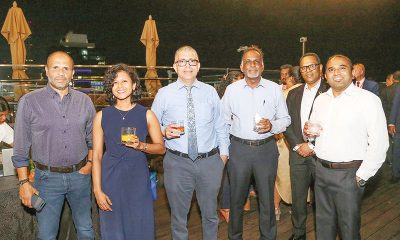
 Business7 days ago
Business7 days agoMembers’ Night of the Sri Lanka – Russia Business Council of The Ceylon Chamber of Commerce
-

 Features7 days ago
Features7 days agoLiberation Day tariffs chaos could cause permanent damage to US economy, amid global tensions
-
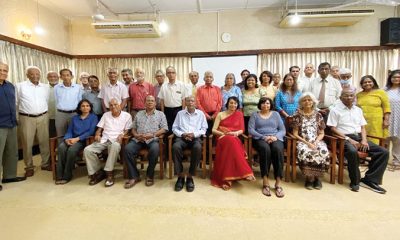
 Features7 days ago
Features7 days agoMinds and Memories picturing 65 years of Sri Lankan Politics and Society
-

 Business23 hours ago
Business23 hours agoDIMO pioneers major fleet expansion with Tata SIGNA Prime Movers for ILM
-
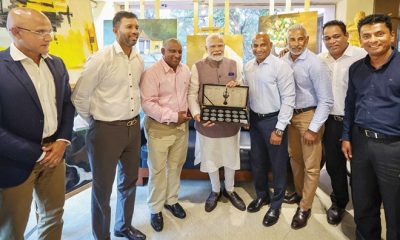
 Sports7 days ago
Sports7 days agoLankan legends, Modi and the Jaffna dream
-
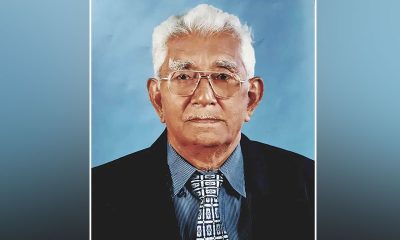
 Opinion7 days ago
Opinion7 days agoEnd of an Era: Passing away of Raja Uncle (Mr. Rajapaksha)
-

 Features7 days ago
Features7 days agoRepentance Leads to Passion
-
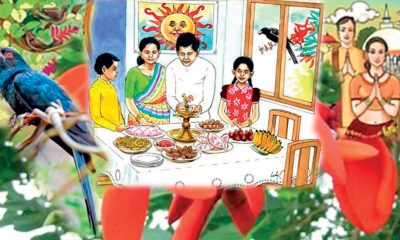
 Features7 days ago
Features7 days agoRecollections of two past Aprils












